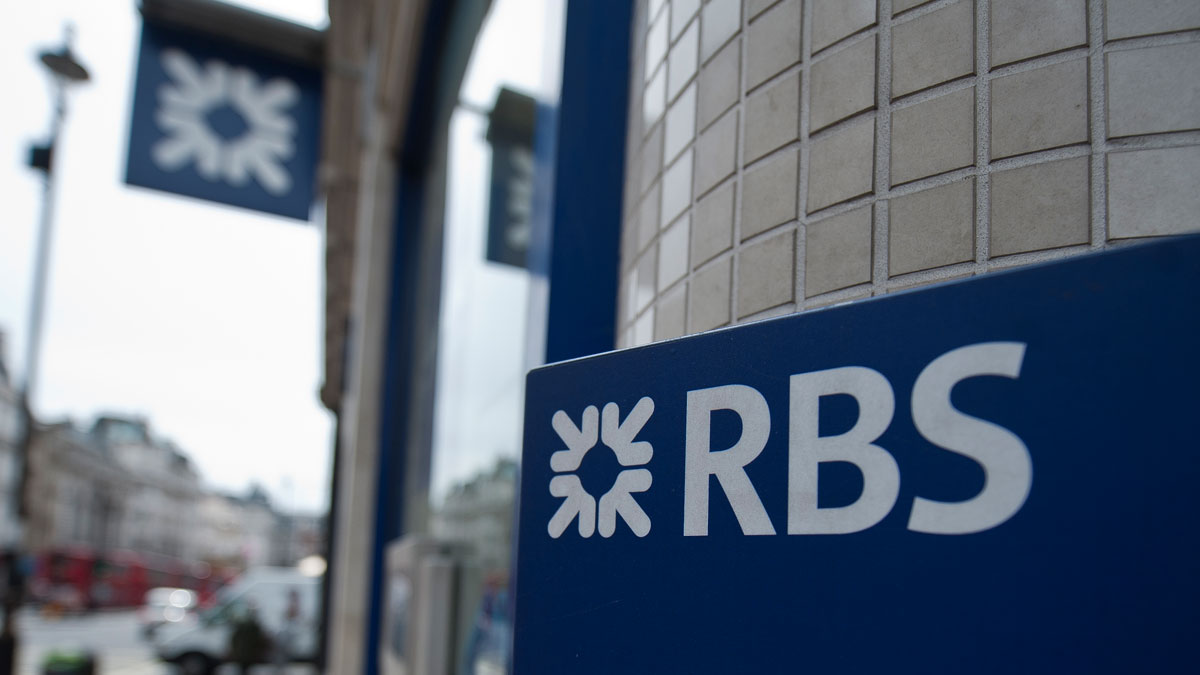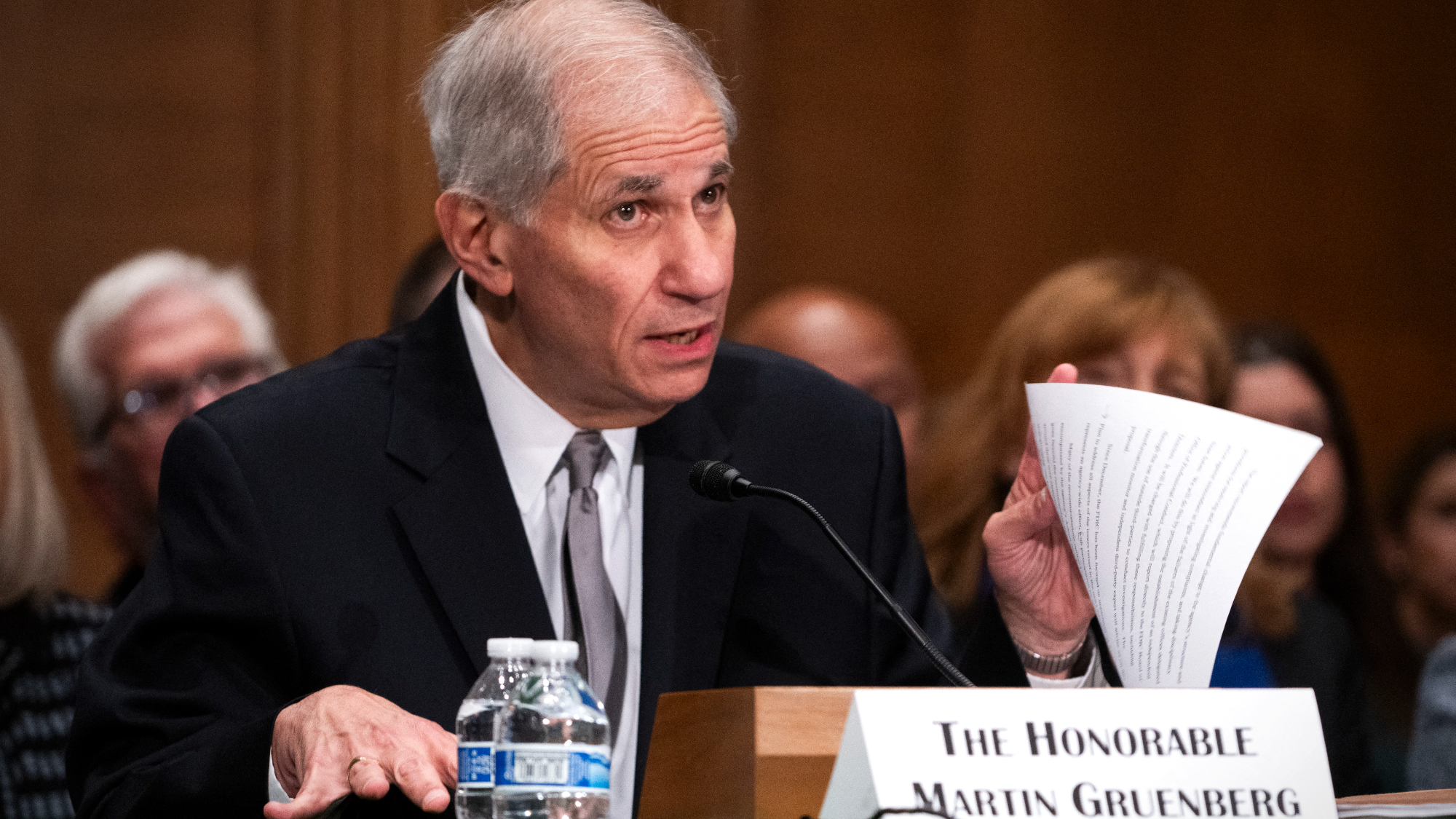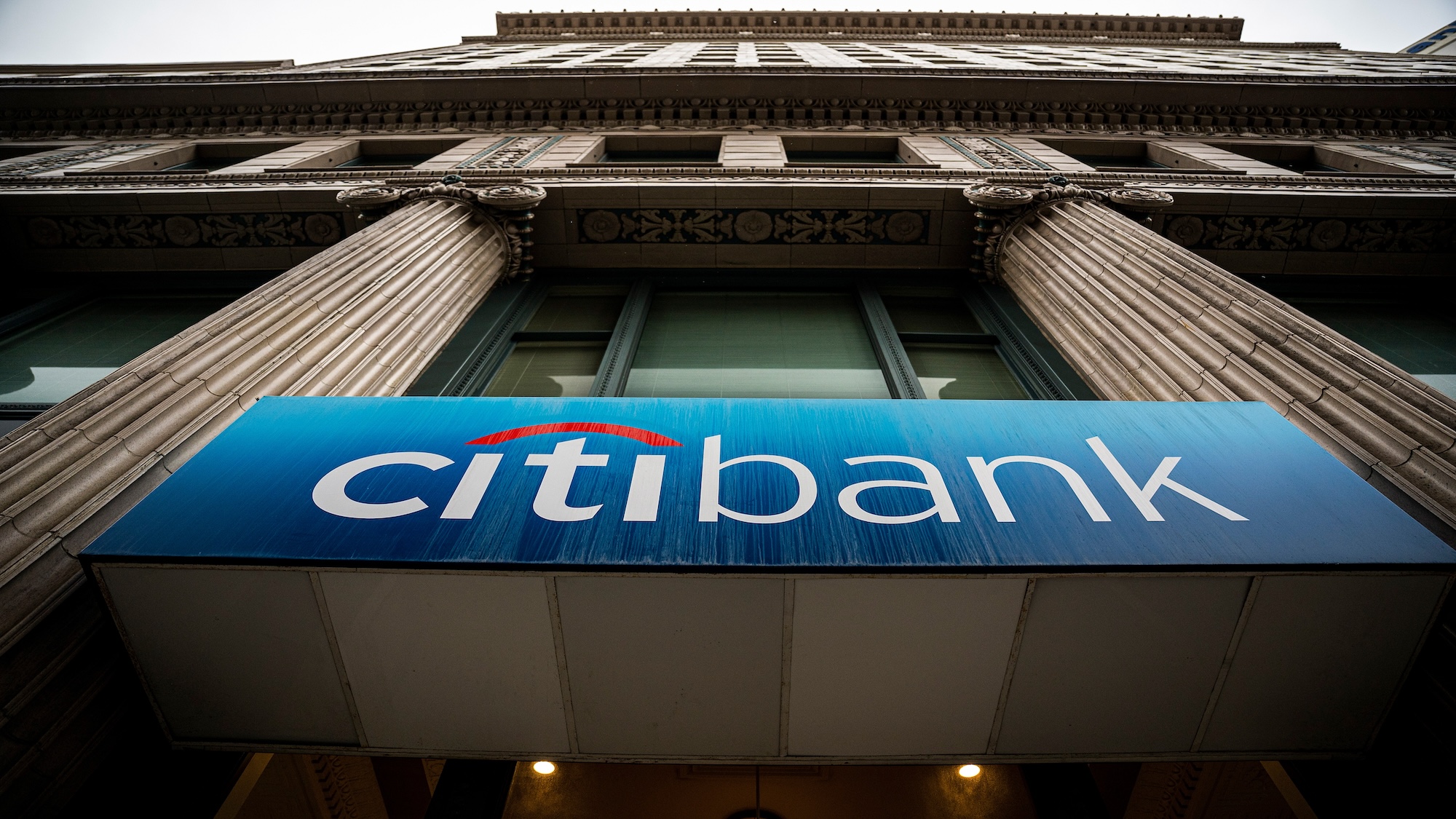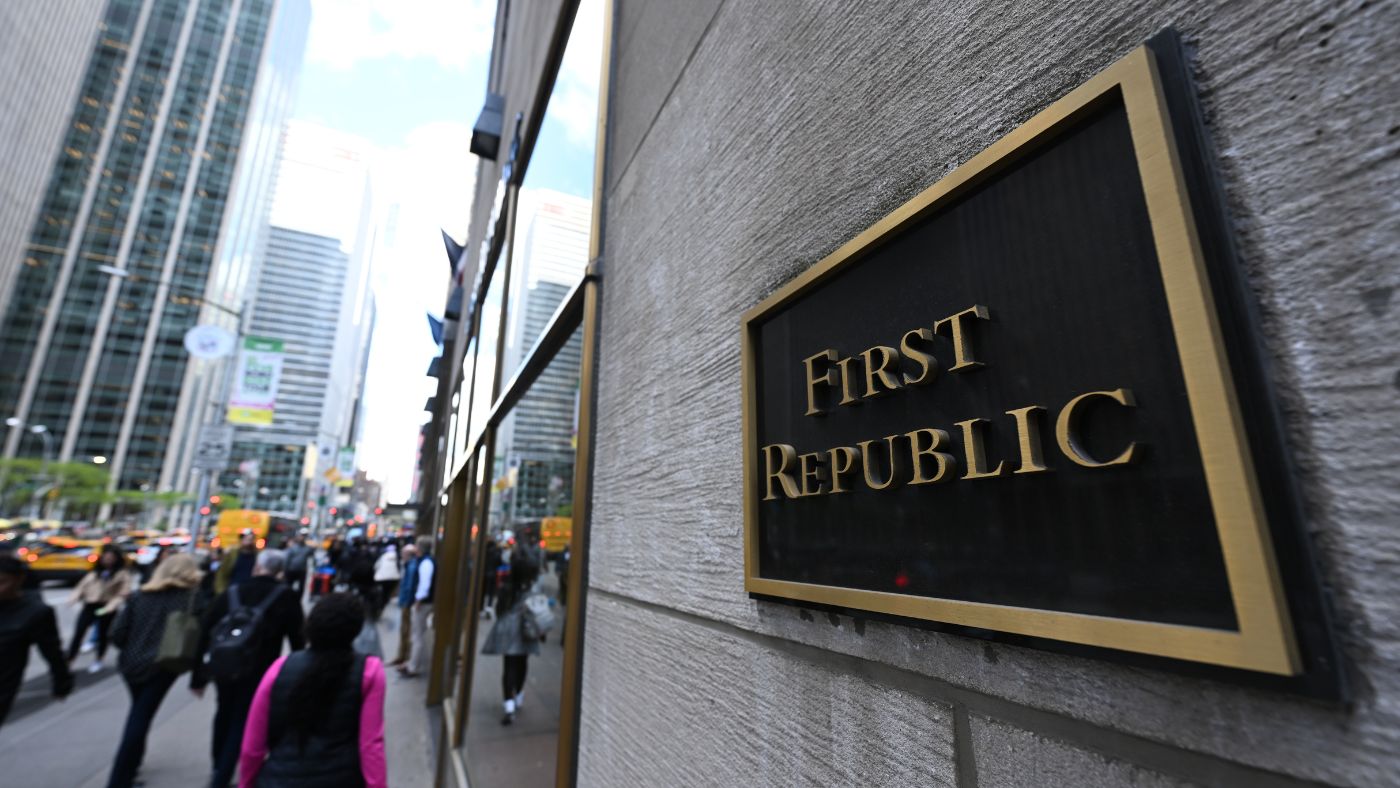RBS smashes expectations with £940m profit
State-backed bank celebrates half-year success, but shadow hangs over rest of year

A free daily email with the biggest news stories of the day – and the best features from TheWeek.com
You are now subscribed
Your newsletter sign-up was successful
RBS boosts 'mega fine' fund to £6.8bn
26 January
Royal Bank of Scotland has set aside another $3.8bn (£3.1bn) to cover a "mega fine" issued by the Department of Justice in the US.
The new provision takes the total set aside to $8.3bn (£6.7bn), says Channel 4 News.
The Week
Escape your echo chamber. Get the facts behind the news, plus analysis from multiple perspectives.

Sign up for The Week's Free Newsletters
From our morning news briefing to a weekly Good News Newsletter, get the best of The Week delivered directly to your inbox.
From our morning news briefing to a weekly Good News Newsletter, get the best of The Week delivered directly to your inbox.
It's the latest in a long line of financial blows related to the bank's activities before the financial crisis in 2008 – and its near-collapse in the months after.
The dent to the bank's balance sheet is also "sure… [to] push RBS to a loss for the full year 2016 – its ninth consecutive year of losses."
The fine from the US government relates to the sale of mortgage-backed securities in the years leading up to the financial crash.
Authorities maintain that complex "collateralised debt obligations" backed by bundles of mortgage loans were mis-sold as safe investments on the basis that the risk of defaults was heavily cross-subsidised.
A free daily email with the biggest news stories of the day – and the best features from TheWeek.com
In fact these investments, which were sold all over the world, collapsed amid a wave of defaults among so-called "sub-prime" US homeowners with a poor credit history.
Other global banks have already agreed settlements, including most recently Deutsche Bank and Credit Suisse for $7.2bn (£5.8bn) and $5.3bn (£4.3bn) respectively.
Most banks have accepted a negotiated deal with the notable exception of Barclays, which will fight its corner in a public trial.
While RBS's provision is massive, it may not be enough.
Channel 4 points out that the bank sold around 20 per cent more of the mortgage bonds than Deutsche – and that "analysts have estimated the fine could be anywhere between $12bn (£9.6bn) and $20bn (£15.9bn)".
Bosses admit the bank has not yet entered active negotiations and that in the midst of a changeover of power in the US, RBS remains uncertain about the "duration and outcome" of investigations.
RBS faces £400m claim over restructuring group
25 January
Royal Bank of Scotland is facing a claim for £400m from a businessman over the demise of his property firm in 2013.
Stuart Wall is the latest customer to allege mistreatment at the hands of RBS's Global Restructuring Group after the financial crisis.
In a claim lodged at the High Court, he says the group was used to force companies with RBS loans into distress and ultimate failure to comply with a European Commission ruling, reports The Times.
The paper adds that EU approval of the UK government's £45bn bailout of RBS "included a penalty if the bank had failed to cut its balance sheet sufficiently", with a demand for the removal of as much as £250bn from its balance sheet.
Wall says this ultimately led to his Opal Property Group collapsing into administration in 2013. He also asserts it was mis-sold an interest rate hedging loan product by RBS.
RBS denies all the claims.
The bank has faced a wave of allegations over the restructuring arm, which a government adviser said in 2014 had forced companies to fail in order to strip assets.
Revelations late last year cited emails that referred to a "Project Dash for Cash", which included using the restructuring business to maximise additional fee income.
RBS has admitted to widespread failings but not forcing firms to fail. It has agreed to pay back £400m to victims through a compensation fund it will administer.
However, campaigners say that is not enough to cover wrongdoing by a division that, at its peak, was generating annual profit of £1.2bn.
RBS forced to defend 'unminuted dinners' during crisis
12 December
Royal Bank of Scotland is facing more negative headlines over two ongoing legal issues involving thousands of shareholders and business customers.
In one case, the bank has been forced to defend its practice of holding "unminuted" dinners for directors ahead of board meetings during the financial crisis, says the Daily Telegraph.
"RBS has admitted that gatherings were held and that minutes were not kept," says the Telegraph. But it has "denied agenda items were agreed".
The bank said: "The purpose was not to pre-empt the formal meeting the following day. Rather, they provided a forum for the directors to interact outside the formal board meetings and to discuss relevant matters".
The dinners have been highlighted by two shareholder groups claiming more than £1bn in compensation relating to a £12bn fundraising in 2008, arguing they were "misled" over the state of the bank's finances.
The RBS Shareholder Action Group is pushing ahead with a court action demanding compensation of £1.2bn, says the Financial Times.
They have already refused an offer that would have capped redress at around £800m.
Without a settlement, RBS and several executives, including ex-boss Fred "the Shred" Goodwin, will be forced to endure an embarrassing and highly public trial starting in March.
Last week, the Daily Mail criticised the bank on behalf of 30,000 small investors that participated in the rights issue, but who have not joined one of the official legal claims and who "will not get any money at all".
Elsewhere, RBS is similarly being accused of denying compensation to wronged parties, this time business customers that were placed in its restructuring division after 2008.
A total of £400m has been set aside to repay complex fees that were routinely charged to businesses in what the bank labelled Project Dash for Cash, but firms dealt with by the restructuring arm and not charged fees will get nothing.
Campaigners say the £400m compensation package massively undervalues the scale of the wrongdoing in a division that made peak annual profit of £1.2bn.
RBS faces challenge to 'inadequate' compensation offer
7 December
Royal Bank of Scotland is facing a battle on two fronts over compensation related to its activities in the immediate aftermath of the financial crisis.
Earlier this week, the bank confirmed it had reached an agreement with three of five shareholder groups who claim they were misled over a £12bn fundraising in 2008.
The total compensation package offered is worth £800m in total - 41p for each share held. However, the two groups have so far rebuffed the deal.
One of them, the RBS Shareholder Action Group, which represents 27,000 investors, is pushing ahead with a court action demanding compensation of £1.2bn, says the Financial Times.
"We had no option but to reject this inadequate offer and remain committed to seeking justice for our members through the courts," said the group.
A smaller group, representing "the likes of Societe Generale, Abbey Life, Aberdeen Asset Management and Axa", has also not settled.
In total, the original claim was for damages of £4bn and the trial would begin in March.
"It means that the bank is facing a race against time if it wants to settle," says The Times.
Elsewhere, Conservative MP Andrew Tyrie, who is chairman of the Treasury select committee, has written to RBS over its compensation fund for small firms that were mistreated by its restructuring group.
A £400m package was announced last month to repay fees charged to smaller companies that were targeted in a "dash for cash" following the financial crisis.
In a letter to RBS boss Ross McEwan, Tyrie asks if "the £400m it has set aside… will be large enough to meet the claims from those who argue they have been mistreated", says The Guardian.
McEwan said: “We have been very clear that we wanted to deal with as many of our legacy litigation issues as possible during 2015 and 2016."
On the fundraising compensation deal, he added: "We are pleased to have reached this agreement and hope that it will be accepted by the remaining claimant groups so that this long course of complex and costly litigation can now be concluded."
RBS offers £800m to shareholders - but legal battle is not over
5 December
Royal Bank of Scotland has agreed a multimillion-pound settlement with a number of large investors over its ill-fated £12bn rights issue in 2008.
However, it still faces a battle with two shareholder groups, one representing more than 27,000 retail investors, who are demanding as much as £4bn in compensation.
At issue is the prospectus RBS issued before the fundraising at the height of the financial crisis, which five groups of investors claim was misleading about the bank's finances.
Months after shareholders pumped £12bn into RBS, the government was forced to bail it out to the tune of £45bn and the share price tumbled, inflicting huge losses on those who participated in the supposed rescue.
The bank has now agreed a "full and final settlement" worth 41p per share with three of the groups, including large institutions such as pension funds and insurers, says the Financial Times. If all five agree to the terms, RBS will provide as much as £800m in compensation, bosses have confirmed.
However, the remaining groups, representing "the likes of Societe Generale, Abbey Life, Aberdeen Asset Management and Axa", as well as tens of thousands of ordinary shareholders, say the compensation is not enough and they will fight on, says The Times.
The investors, who paid about £2 a share at the time, allege the institutions who have settled knew much more about the bank's finances than they let on. Their legal action includes a claim for damages of as much £4bn.
Among the claimants' allegations, apparently evidenced by email correspondence, is that RBS's own auditors warned the way the bank's losses were described in the prospectus was "misleading".
In its defence, reports the Times, the bank said "its capital position was 'well known to the market' because, it alleges, 17 major investors were carefully briefed during a series of meetings in early 2008".RBS denies any wrongdoing but has said it wants to finalise its litigation costs and that "an out-of-court settlement [is] consistent with our legal obligations".
-
 What to know before filing your own taxes for the first time
What to know before filing your own taxes for the first timethe explainer Tackle this financial milestone with confidence
-
 The biggest box office flops of the 21st century
The biggest box office flops of the 21st centuryin depth Unnecessary remakes and turgid, expensive CGI-fests highlight this list of these most notorious box-office losers
-
 What are the best investments for beginners?
What are the best investments for beginners?The Explainer Stocks and ETFs and bonds, oh my
-
 What does the FDIC do?
What does the FDIC do?In the Spotlight The Federal Deposit Insurance Corporation is now a 'Trump target'
-
 TD Bank accepts $3B fine over money laundering
TD Bank accepts $3B fine over money launderingSpeed Read The US retail bank pleaded guilty to multiple criminal charges
-
 FDIC chair out after toxic work culture report
FDIC chair out after toxic work culture reportSpeed Read The report revealed a trend of sexual harassment and discrimination at the Federal Deposit Insurance Corporation
-
 Citibank to cut off online access for customers who don't go paperless
Citibank to cut off online access for customers who don't go paperlessSpeed Read The bank will shut off the customer's access to both their online website and mobile app
-
 First Republic: will UK banks survive unscathed?
First Republic: will UK banks survive unscathed?Under the Radar US shares dip after collapse of third regional bank, but experts say contagion to the UK is unlikely
-
 Banking crisis: has the city weathered the financial storm?
Banking crisis: has the city weathered the financial storm?Talking Point The financial storm appears to have abated, but no one’s ruling out more squalls along the way
-
 Should the UK relax bank ring-fencing rules?
Should the UK relax bank ring-fencing rules?Talking Point Treasury minister said he hopes to ‘boost competitiveness’ in the City with easing of regulations
-
 Should caps on bankers’ bonuses be scrapped?
Should caps on bankers’ bonuses be scrapped?Talking Point New chancellor Kwasi Kwarteng believed to be planning contentious move to ‘boost the City’